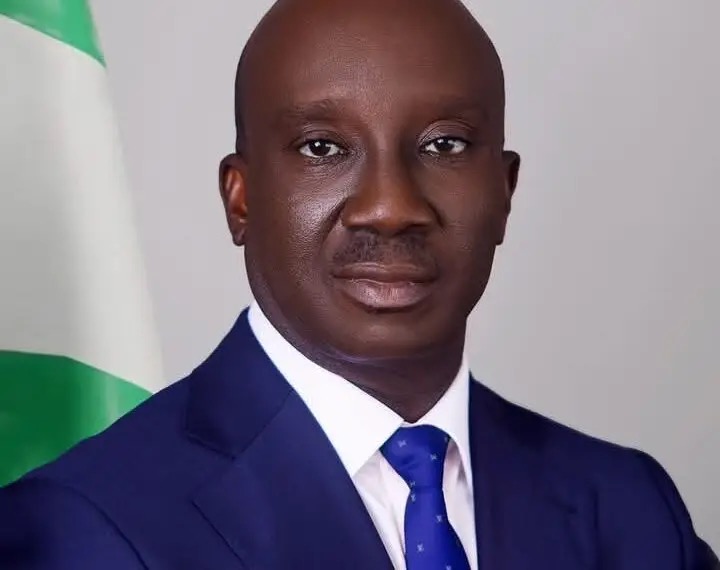Edo State Governor, Monday Okpebholo, has sparked nationwide conversation after declaring that no commissioner will be allowed into the State Executive Council (Exco) meeting without wearing the ‘Asiwaju cap’ — a symbolic hat associated with President Bola Ahmed Tinubu.
The governor made the announcement on Tuesday, October 14, 2025, during the swearing-in ceremony of 20 newly appointed commissioners and members of various state boards in Benin City.
A Bold Show of Loyalty
Governor Okpebholo, who represents the All Progressives Congress (APC), emphasized his loyalty and gratitude to President Tinubu, noting that his administration owes much of its stability and political progress to the president’s support.
“Let me make it clear — this government would not exist without the leadership of a responsible President,” Okpebholo said.
“In past elections, we struggled because we didn’t have the full backing of the presidency. But under President Tinubu, things are different.”
The governor went further to issue a symbolic but firm directive:
“You see this cap I’m wearing? It represents loyalty and direction. I will not forgive any commissioner who comes to Exco without wearing it. If you appear in traditional attire without the Asiwaju cap, you will be turned back.”
A Call for Discipline and Integrity
While emphasizing loyalty to the APC and the Tinubu administration, Okpebholo also took the moment to remind his new appointees that service, not self-interest, must guide their tenure.
He cautioned the newly sworn-in commissioners against corruption, complacency, and misconduct, stressing that his government would not tolerate any act capable of tarnishing Edo State’s image.
“These appointments are not political favors or rewards,” he noted.
“They are a call to service — a chance to deliver practical governance that directly improves the lives of our people. We want results, not propaganda.”
Political Symbolism and Public Reaction
The “Asiwaju cap” directive has triggered widespread debate online and offline. Supporters of Okpebholo interpret the move as a symbol of unity within the APC, designed to reinforce party discipline and alignment with national leadership.
However, critics have argued that compulsory political symbols could blur the lines between state governance and partisan loyalty. Some observers believe the governor’s declaration, though symbolic, highlights the growing influence of President Tinubu’s political identity across state structures.
Political analysts say the directive may be intended to strengthen Okpebholo’s ties with the presidency ahead of Edo’s future political contests, especially as the state continues to navigate internal APC power shifts.
Okpebholo’s Administration and the Road Ahead
Since assuming office, Governor Okpebholo has positioned his administration as one focused on “results over rhetoric.” He has repeatedly pledged to prioritize infrastructure development, youth empowerment, and economic reform.
The governor’s insistence on uniformity — represented through the symbolic cap — appears to be part of his broader message of discipline, unity, and shared purpose within his cabinet.
As one political observer put it:
“In Edo politics, symbolism is power. The Asiwaju cap may be more than fashion — it’s a test of allegiance.”


Leave a Reply